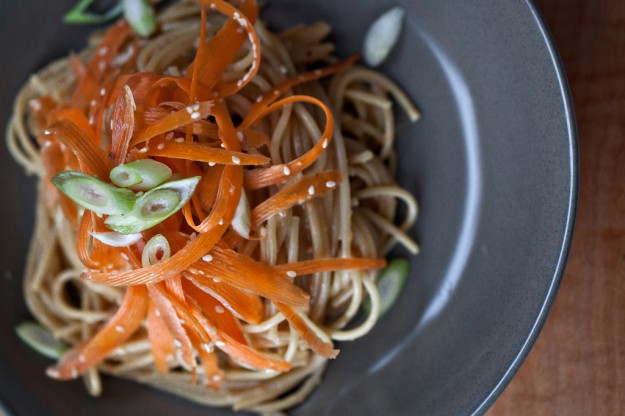"Kan" means feel and "Sha" means thanks. "Arigato" is another Japanese word that shares the same meaning as Kansha. And the word Kansha is often an informal word the Japanese use to say "thank you".
To feel thanks as relating to cooking is a concept exemplified through some of the exerpts in Elizabeth Andoh's book. And though it is geared to vegan or vegetarians, it graciously accommodates the carnivore as well. Kansha is the ethos of taking our perceptions of meal preparations (not just focusing on the ingredients) from being a hurried burdensome task and transforming it into a deliberate, enjoyable, thankful and much slower experience.
This is what's rollin' around in my noggin since gleaning the last bit of ripening fruit of our summer garden. I have my trusty enamel cast iron kettle at the ready for a warm and inviting meal of fazool or creamy cauliflower soup, two of our family all-time favorites.
Ah, but then I happily stumbled upon this recipe by Ashley Rodriguez in her blog Not Without Salt, and it looks terrific too in it's simplicity, and it compliments Kansha's esteemed viewpoint of no waste. A no left-over left behind sentiment I routinely practice. Don't we all these days? Maybe it's a good thing and the manifest destiny of those two must use carrots in my vegetable bin.


No comments:
Post a Comment